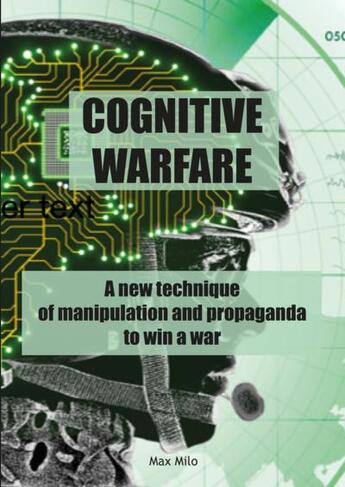-
Date de parution : 03/04/2025
-
Editeur :
Max Milo
-
EAN : 9782315023325
-
Série :
(-)
-
Support :
Papier
Résumé:
Why are so many wars being waged around the world when they are cruel, immoral, harmful to the vast majority of the population and, above all, contrary to international law? This is explained by historical, geopolitical and economic aspects, but rarely by the psychological aspect. In such cases,... Voir plus
Why are so many wars being waged around the world when they are cruel, immoral, harmful to the vast majority of the population and, above all, contrary to international law? This is explained by historical, geopolitical and economic aspects, but rarely by the psychological aspect. In such cases, we speak of war propaganda, which enables a nation to go to war with conviction and weaken the opposing camp. Today, countries speak of «cognitive warfare», i.e. warfare that exploits information technologies to induce soldiers, technicians, engineers, decision-makers and politicians to have a distorted representation of the world... and to profit from it.
Semantic manipulation, induced illusion and attention saturation are just some of the hundreds of examples. For the past 8 years, NATO has been working on perfecting manipulation techniques to counter the influence of China and Russia in this field. «Cognitive warfare», which has become the sixth theater of operations in a war, along with sea, land, sky and space, is 'one of the hottest topics for NATO at the moment', points out former French lieutenant-colonel and IHub Innovation Director François du Cluzel.
The book takes stock of human cognition, its strengths and weaknesses, and its impact on military decision-making, illustrated by the war in Ukraine and the Israeli-Palestinian war.
Donner votre avis















